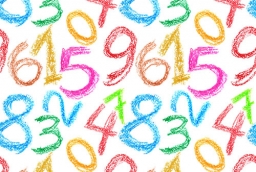Number difference
Calculate the difference between the smallest odd four-digit number and the largest even three-digit number, where we can form each number from only these digits: 0, 1, 3, 5, 7, 8, 9 without repeating digits.
Final Answer:

You need to know the following knowledge to solve this word math problem:
algebraarithmeticbasic operations and conceptsnumbersGrade of the word problem
Related math problems and questions:
- Digit number difference
 The digits 1, 2, 4, and 8 form two four-digit numbers so that all 4 digits are used in the notation of each number. Calculate the difference between such largest even number and smallest odd number (in that order).
The digits 1, 2, 4, and 8 form two four-digit numbers so that all 4 digits are used in the notation of each number. Calculate the difference between such largest even number and smallest odd number (in that order). - Repeatition not allowed
 How many four-digit numbers can be formed from the numbers 3 5 8 9 if they are not allowed to be repeated?
How many four-digit numbers can be formed from the numbers 3 5 8 9 if they are not allowed to be repeated? - Odd digit difference
 What is the difference between the largest and smallest numbers, composed of only odd digits and none of the digits repeated in the numbers?
What is the difference between the largest and smallest numbers, composed of only odd digits and none of the digits repeated in the numbers? - Three-digit number
 How many three-digit natural numbers can we form from the digits 0, 1, and 2 if the numerals can be repeated in these numbers?
How many three-digit natural numbers can we form from the digits 0, 1, and 2 if the numerals can be repeated in these numbers? - Nine-digit numbers
 Determine the number of nine-digit numbers in which each of the digits 0 through 9 occurs at most once and in which the sums of the digits 1 through 3, 3 through 5, 5 through 7, and 7 to the 9th place are always equal to 10. Find the smallest and largest
Determine the number of nine-digit numbers in which each of the digits 0 through 9 occurs at most once and in which the sums of the digits 1 through 3, 3 through 5, 5 through 7, and 7 to the 9th place are always equal to 10. Find the smallest and largest - Natural numbers
 Find the number of all natural numbers greater than 200 in which the digits 1, 2, 4, 6, 8 occur at most once and not contains any other digits.
Find the number of all natural numbers greater than 200 in which the digits 1, 2, 4, 6, 8 occur at most once and not contains any other digits. - Air draft
 The numbers 1,2,3,4,5 are written on five tickets on the table. Air draft randomly shuffled the tickets and composed a 5-digit number from them. What is the probability that he passed: and the largest possible number b, the smallest possible number c, a n
The numbers 1,2,3,4,5 are written on five tickets on the table. Air draft randomly shuffled the tickets and composed a 5-digit number from them. What is the probability that he passed: and the largest possible number b, the smallest possible number c, a n
